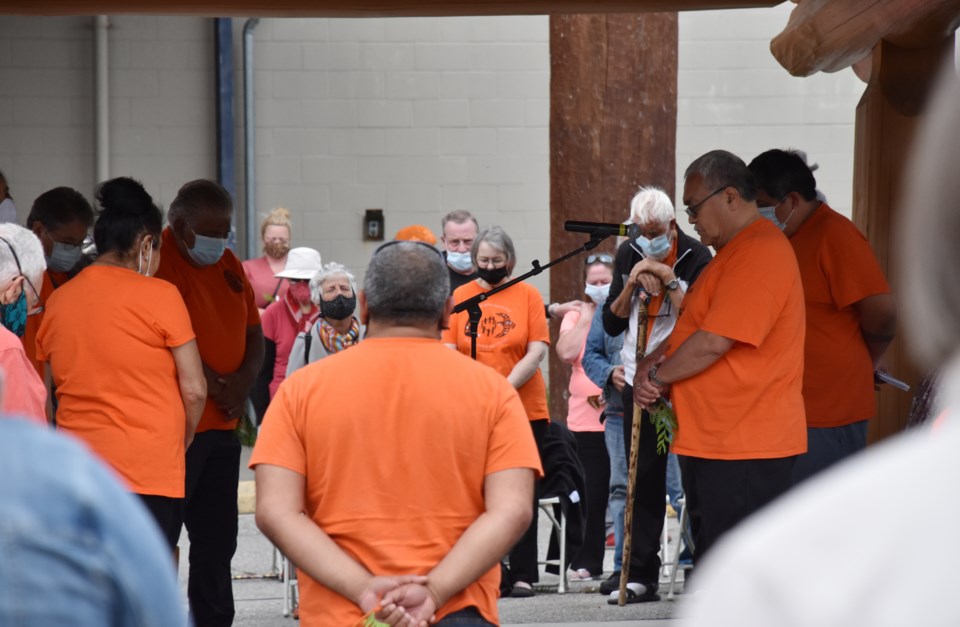On Monday, May 31, the space outside shíshálh Nation’s administrative offices was awash in orange t-shirts as people gathered for a ceremony.
The focal point of the afternoon was the Weeping Mother, a stone statue memorializing residential school survivors protected underneath a shelter from the glare of the sun – not far from where a residential school once stood.
Elders and survivors, shíshálh Nation leaders and staff, local government politicians, high school students, RCMP officers and members of the community, including other First Nations, from across the Sunshine Coast found their way to this space for many reasons – to find solace, show respect, reflect and gather strength.
The event was organized by former chief and day scholar advocate Garry Feschuk with support from the syiyaya Reconciliation Movement, which he helped establish.
It happened days after Tk’emlups te Secwépemc First Nation chief Rosanne Casimir announced the remains of 215 children had been found buried at a former residential school in Kamloops.
In a speech at the ceremony, Feschuk echoed a defining refrain of the reconciliation movement: “Every bit of work we do, do not leave our survivors behind.”
Members of shíshálh Nation attended the school in Kamloops, hiwus Warren Paull confirmed in a conversation after the ceremony, making Feschuk’s call all the more urgent in this moment.
Paull spoke of the importance of the frank acknowledgment that harm was done, the openness to listen and the attempt to make things right.
That should happen at the government level, he said. “It’s keeping the ideal of what reconciliation truly means… forefront and saying, we can do better – and getting the whole apparatus of government to pivot on that.”
Then Paull shared concrete examples of what can also be done – and is happening – right here on the Sunshine Coast.
He said work is underway to include shíshálh Nation’s history into the curriculum at School District No. 46 and he encourages people – once COVID-19 restrictions relax and it is deemed safe to do so by the nation – to visit the tems swiya Museum.
And then there’s the syiyaya Reconciliation Movement. “My hands go up to them for the hard work they’ve put in,” he said. The movement is always open for people to join. (Those who wish to learn more are invited to call founding member Nancy Denham directly: 604-740-6400.)
June is National Indigenous History Month. In this moment let us reflect on the actions suggested by hiwus Paull, and keep the words of Garry Feschuk close.



